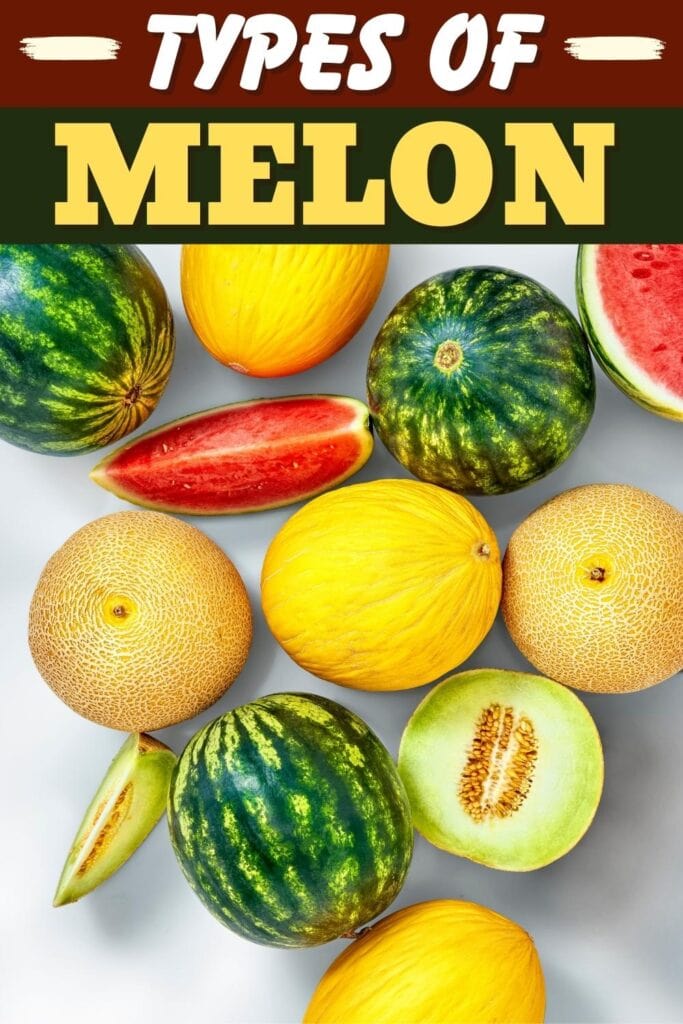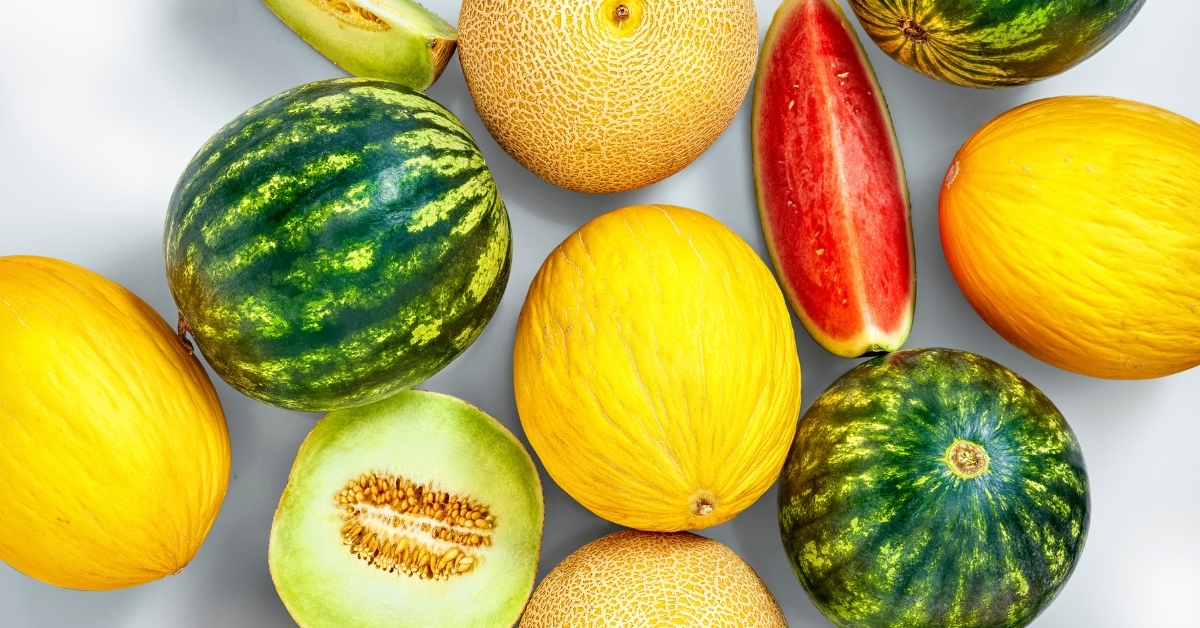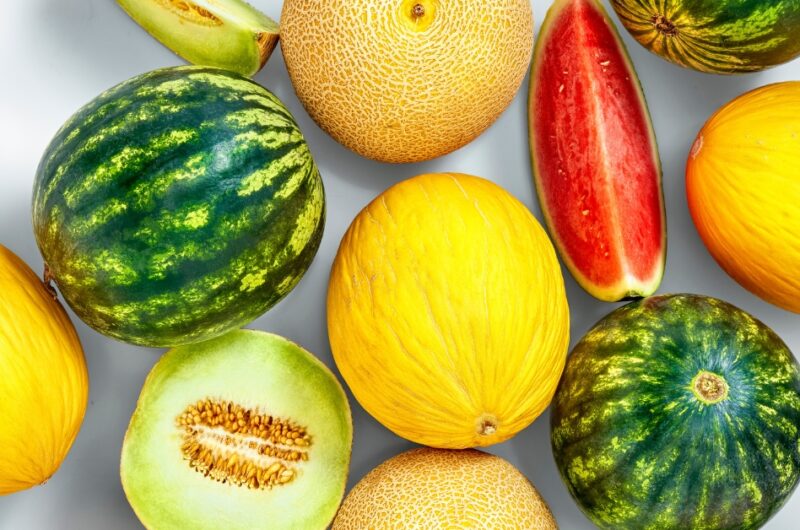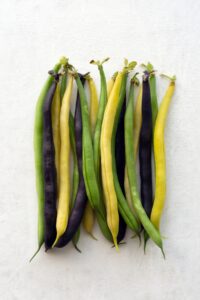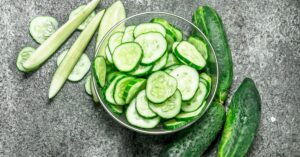The most common types of melon are cantaloupe, watermelon, and honeydew. But there are plenty of other rare varieties that are just as delicious.
Venture out of the box and try them, and you just might find a new favorite!
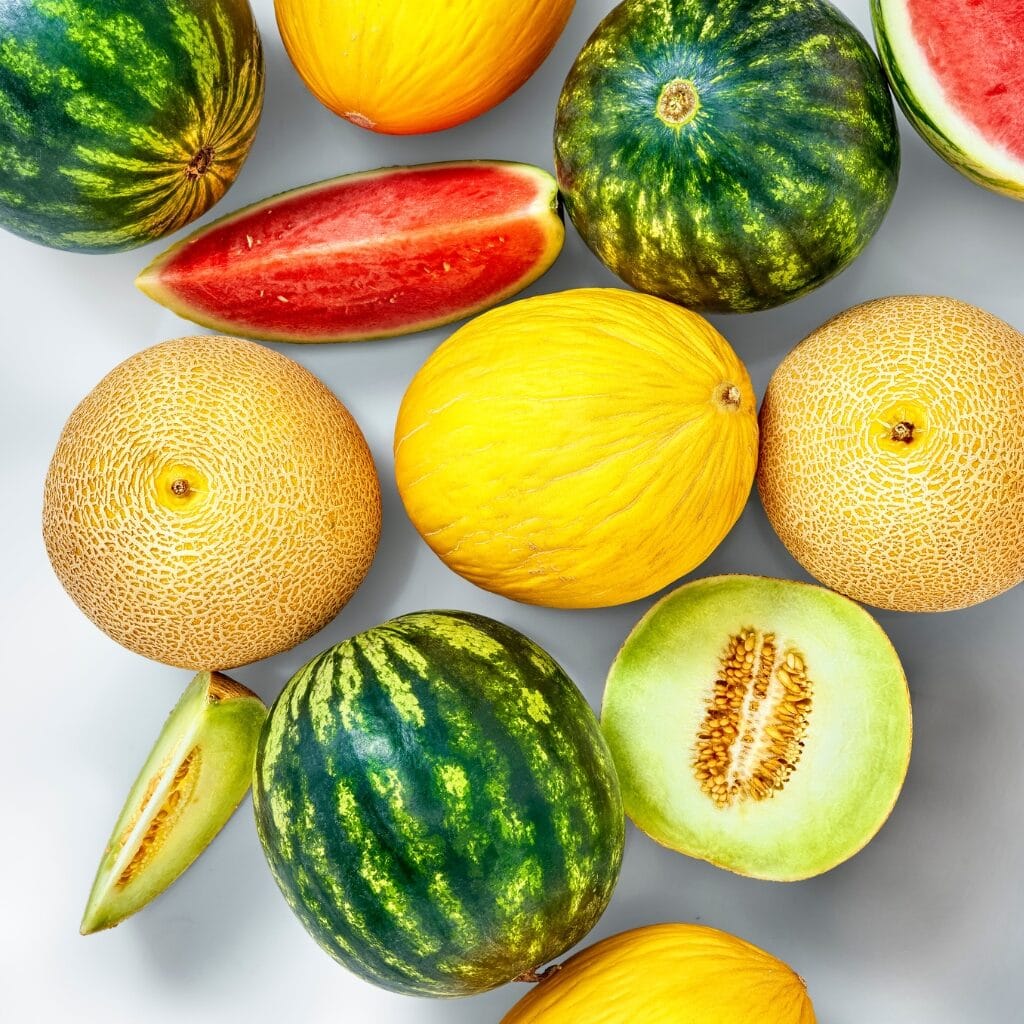
Just wait until you see the quirky cousins in the melon family. Some even have wacky shapes and colors, barely resembling melons!
Intrigued? Read on to find out the juicy truth about the different types of melon!
What Is a Melon?
A melon is a fruit from the gourd family, Cucurbitaceae. It’s known for its fleshy, sweet, and often musky-scented edible flesh. The term encompasses a wide variety, with over 900 species across approximately 95 genera.
The two genera most significant for consumption are Citrullus, or basically watermelons. Then there’s Cucurbita, which includes pumpkins and zucchinis.
Raise your hand if you were shocked like I was to learn that pumpkins are actually melons!
Additionally, melons can be subdivided further into two kinds: natural and hybrid.
Natural melons grow without human intervention. Hybrid varieties result from selective breeding or genetic engineering.
Melons also come in different colors, including green, yellow, and red, each offering similar, yet nuanced flavors.
So, to sum things up, there are so many more melons than you could think of. And today, you’ll learn about 25 of them.
History of Melons
Melons originated in Africa. It’s believed that Africans were the first prehistoric humans to collect and cultivate sweet melon seeds.
Fast forward to around 4,000 years ago. The Ancient Egyptians also started cultivating melons. This is evidenced by melon paintings and seeds found in tombs.
About 1,000 years after the Egyptians, melon cultivation spread to other countries. These include Russia, India, Iran, Afghanistan, China, Japan, and Iraq. In Europe, the Greeks and Romans took up melon farming after interacting with Asian cultures.
The cultivation of melons crossed the ocean to the New World in 1494. Haiti was the first to adopt them. This was thanks to Christopher Columbus introducing melons during his second voyage.
Types of Melon
You’re likely familiar with some of these, like the cantaloupe, watermelon, and honeydew.
But I’ll bet you know nothing about Charentais, Crenshaw, and Bailan melons! Get ready to learn about them and other lesser-known types of melons.
1. Watermelon

Let’s kick things off with the beloved watermelon, a summer icon. Originally from Africa, watermelons now thrive in both tropical and temperate regions globally.
Their hard rind encloses deep red to pink flesh, usually dotted with black seeds, though seedless types exist. With a high water content, the taste is sweet, refreshing, and juicy.
Here’s something you might not know about the popular fruit: its rind is edible and can be pickled or cooked!
2. Cantaloupe
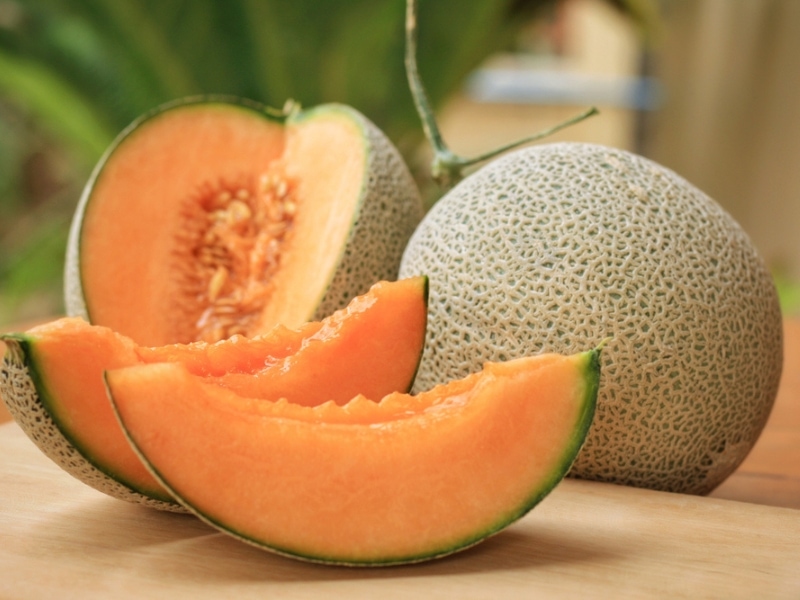
Next up is a charcuterie star, the cantaloupe. With its sweet and tender flesh, cantaloupe has a firmer texture compared to watermelon. It’s ideal to pair with meats and cheeses.
Come late spring, it hits the peak of deliciousness. When selecting a cantaloupe, opt for a tan one adorned with light green lines. Also ensure it’s free of soft spots.
3. Crenshaw Melon
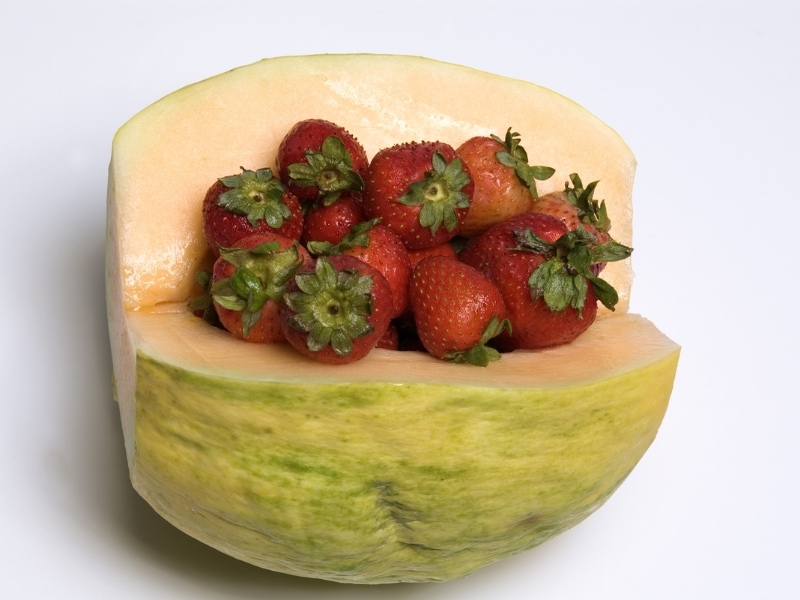
Introducing the Crenshaw Melon, a delightful hybrid of Persian and Casaba melons.
It has an acorn shape and thick rind that ranges from yellow with green streaks to golden hues. Its flesh is an orange or peach color.
It’s tender and juicy with a floral, sweet taste. It’s perfect for fruit salads, pairing with charcuterie, or whipping up into sorbets and smoothies.
4. Honeydew
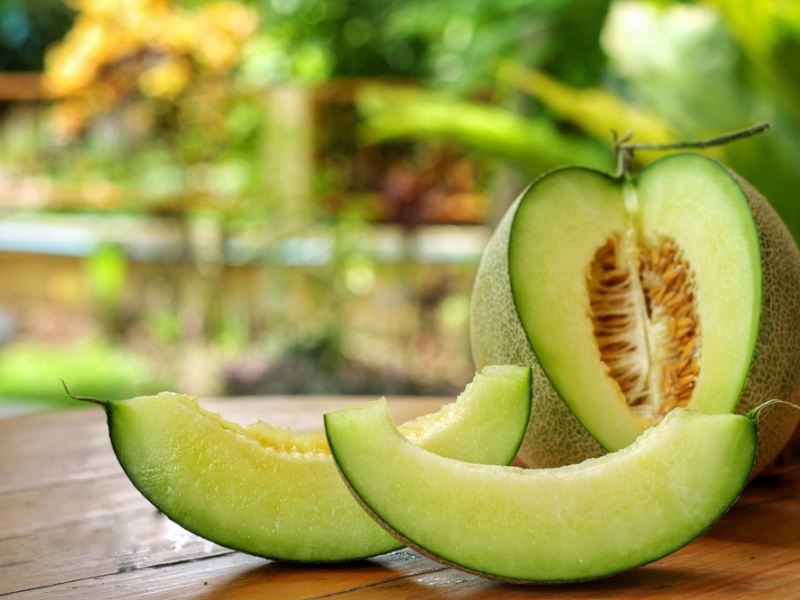
Here’s another crowd-pleaser in the melon family. Belonging to the muskmelon family, the honeydew is cherished for its incredibly sweet flavor.
It’s typically oval and measuring 5 to 8 inches, with pale green flesh and a greenish to yellow skin.
Enjoy it as a dessert or a refreshing snack, particularly during its harvest season from August to October.
5. Canary Melon
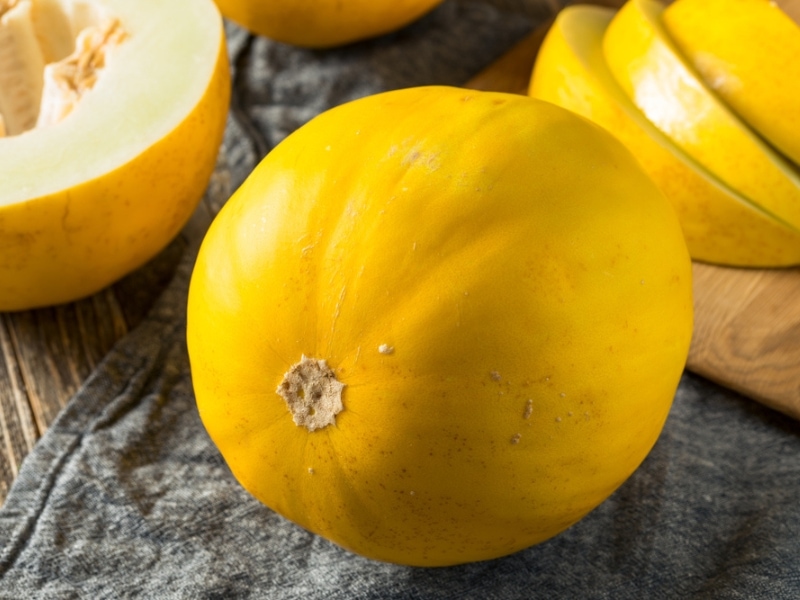
Say hello to the Canary melon, whose radiant yellow skin resembles the Canary bird.
Its flesh is pale green or white. It offers a delightful balance between extreme sweetness and a mild tang, somewhat like a honeydew.
The hardy rind makes it great for extended storage, and it’s also a good source of fiber. Enjoy it fresh, in salads, juices, or even dried as chips.
6. Snap Melon
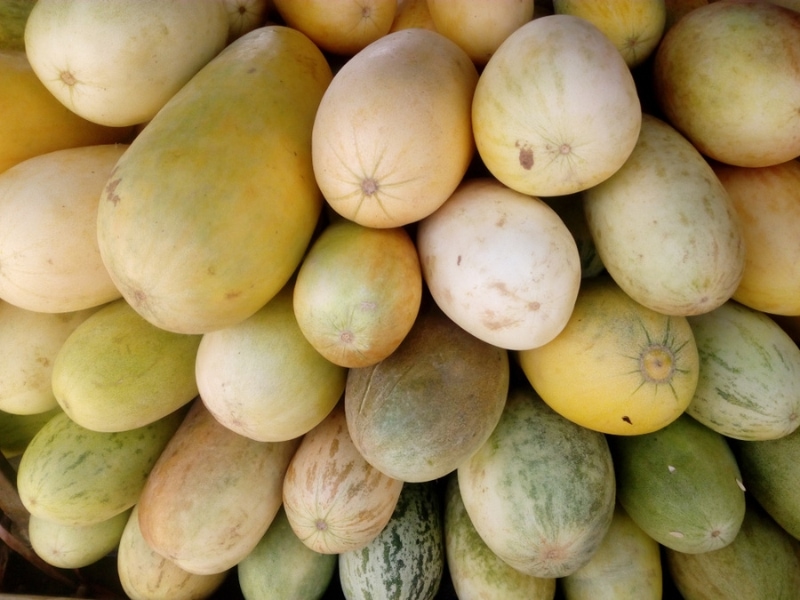
Snap melon, native to Asia, grows easily with minimal intervention. It has a sour and bitter taste, making it ideal to combine with sweet fruits or sugar.
This melon is especially prominent in India, where it’s valued for its versatility in both raw and cooked forms. Its seeds, in particular, are used in “thandai,” a traditional Indian drink.
7. Persian Melon
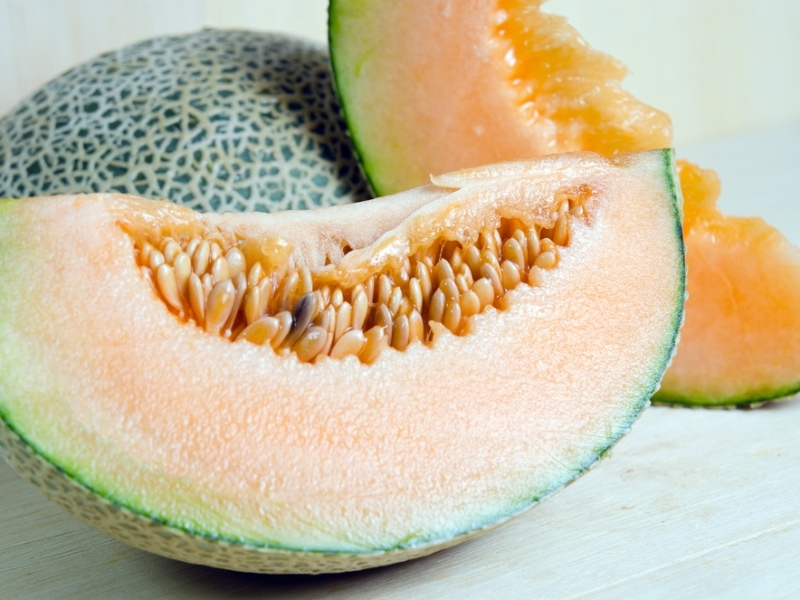
Persian melon, part of the musk melon family, has a sweet and crunchy taste with an elongated, smooth shape.
It features yellow-banded, off-green skin and orange flesh. It’s similar in taste to cantaloupe, but milder due to its larger size.
Originating in Persia, Persian melons are now also cultivated in Europe and North America. However, they’re less common compared to other melons.
8. Ananas Melon
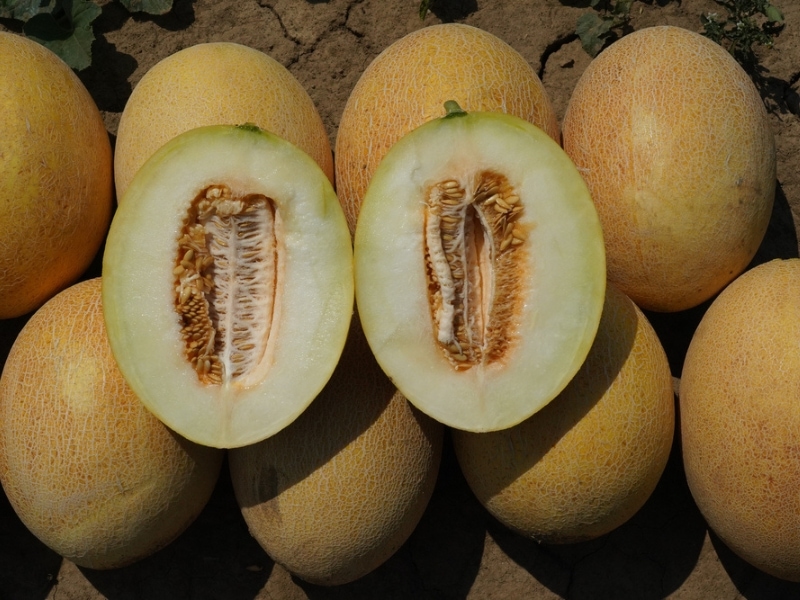
With an enticing aroma reminiscent of pineapples, the ananas melon has a very sweet and mildly spicy flavor. They’re named ‘ananas’ due to their pineapple-like scent, a word meaning pineapple in French and Italian.
Oval in shape, these melons have netted rinds and flesh ranging from white to yellow. They have juicy flesh ranging from white to yellow. There’s also a netted rind akin to cantaloupe.
9. Galia Melon
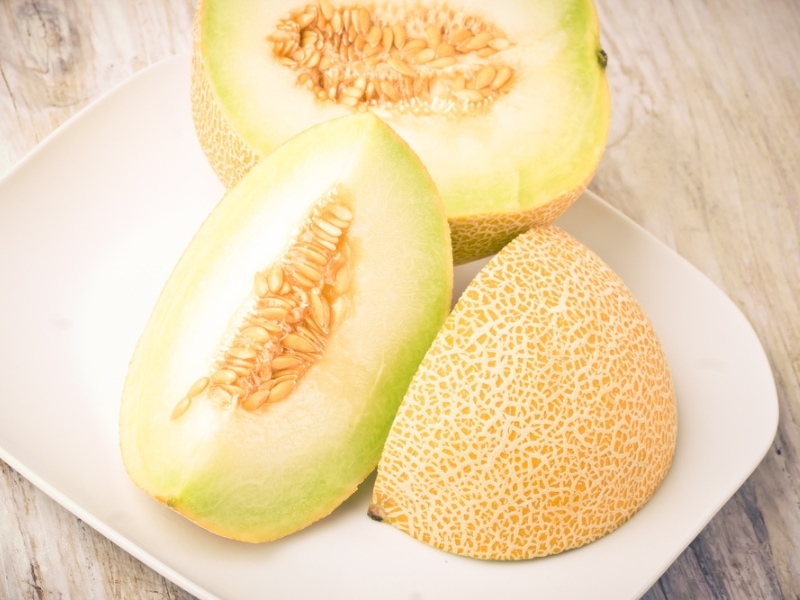
Galia melons were created in Israel in the 1970s. They’re a delightful hybrid between cantaloupe and honeydew.
With their round shape, netted rind, and pale green flesh, they’re a visual blend of their parent melons. Taste-wise, they pack an even sweeter punch than cantaloupes.
Enjoy them as a refreshing dessert, pair them with summer berries, or whip up a Galia melon sorbet.
10. Bailan Melon
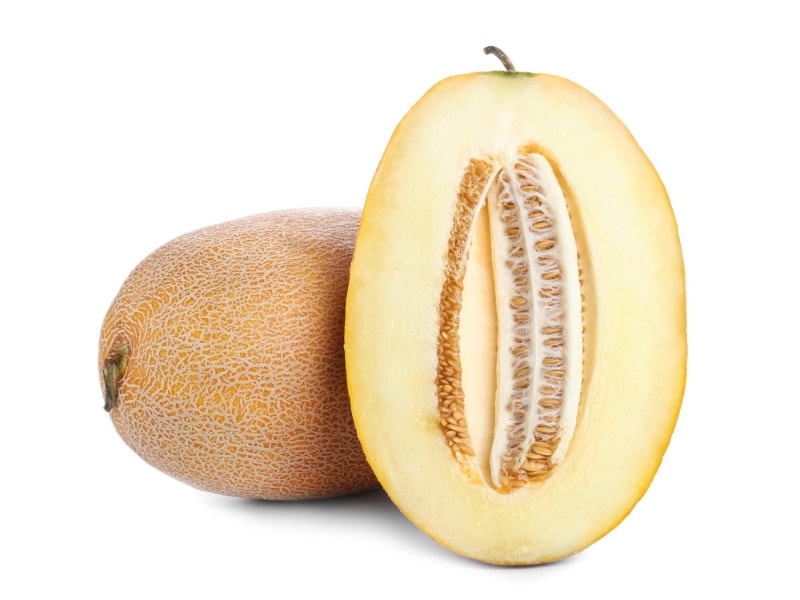
Bailan melons, primarily grown in Gansu Province, China, are a close relative of honeydew melons with a twist. Often referred to as Lanzhou honeydew, they’re heavier than their cousins.
They have dense and succulent flesh that’s exceptionally sweet due to their high sugar concentration.
11. Valencia Melon
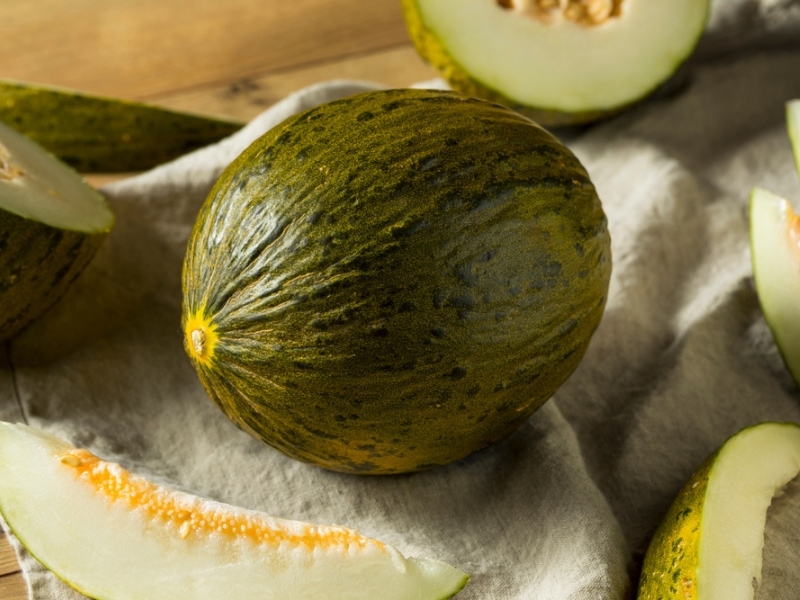
Originating from Spain, the Valencia melon boasts an elongated oval shape. It also has thick dark green skin, and delicate, sweet flesh.
This variety is celebrated for its longevity in storage and low acidity.
Exceptionally juicy and delicious, it’s not just ideal for fresh consumption but also shines in cooked dishes.
12. Golden Prize Melon
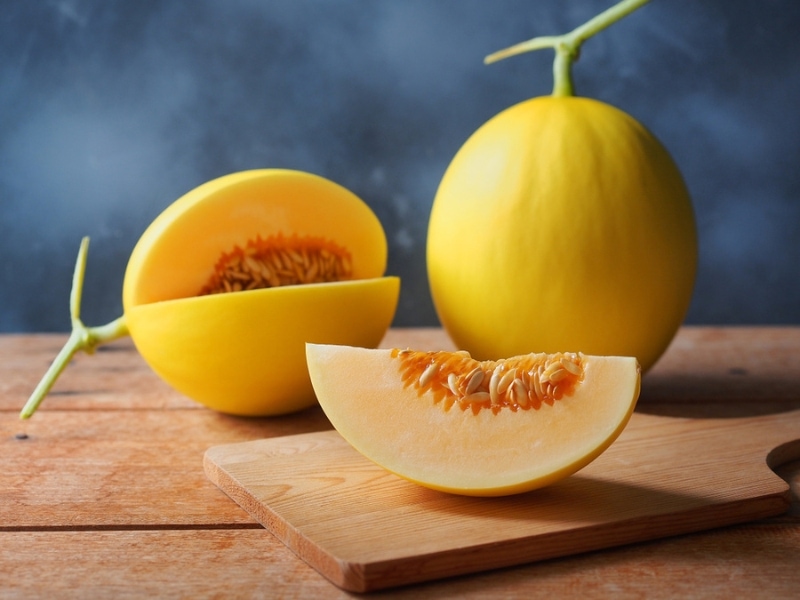
Introducing the golden prize melon. It’s a distinctive variety known for its elliptical shape, bright yellow skin, and exceptional qualities.
This melon offers a delightful sweetness and a texture that combines succulence with a satisfying crunch.
As a bonus, its thick skin allows for extended storage, ensuring its goodness can be enjoyed over time.
13. Cucamelon (or Mouse Melon)
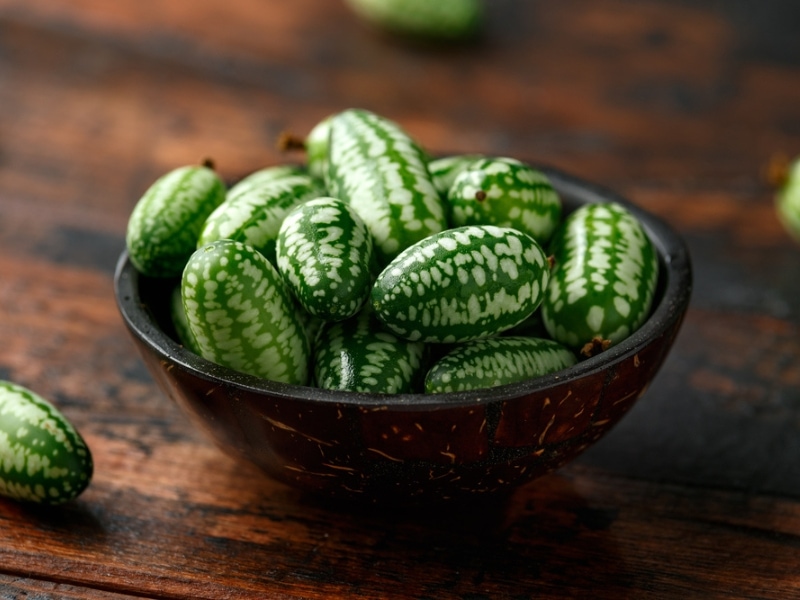
Cucamelons, isn’t their name so fun to say? These tiny delights resemble grape-sized watermelons but taste more like cucumbers.
Known as Mexican sour gherkins, they’re often pickled. Their mild sweetness and tanginess make them a go-to for cocktail twists or garnishes.
14. Autumn Sweet Melon

Autumn sweet melon lives up to its name with its extremely sweet taste. It’s ripe between mid-summer and fall. This melon features a golden rind and white flesh.
With its high water content, it’s also perfect for refreshing juices and smoothies.
15. Bitter Melon (or Pare)
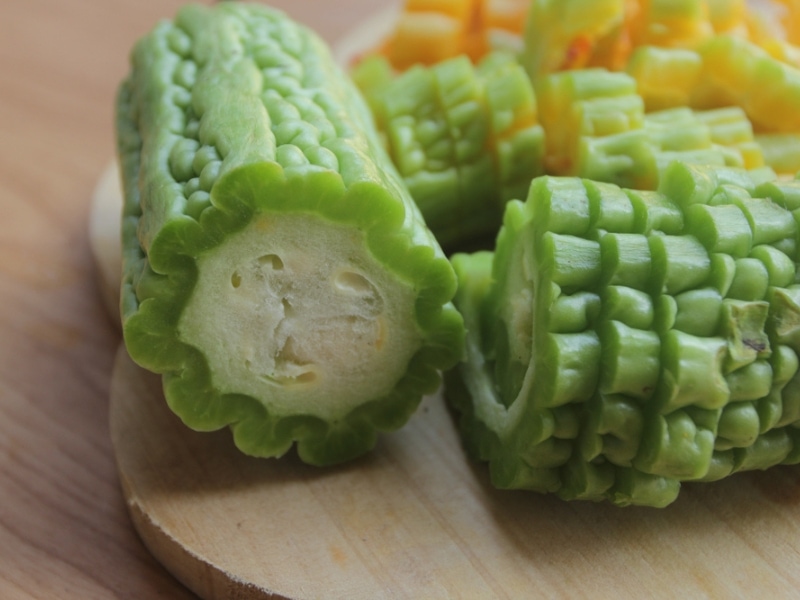
Bitter melon is not the melon you want to snack on, as it’s ridiculously bitter.
Originating from Asia, this is more of a vegetable than a fruit. However, it’s packed with nutrients, particularly vitamins A and C.
Commonly found in Southeast Asia, it thrives in tropical climates. Despite its bitterness, it’s versatile. It’s consumed as tea, cooked in dishes, or stir-fried.
16. Casaba Melon (or Golden Beauty)
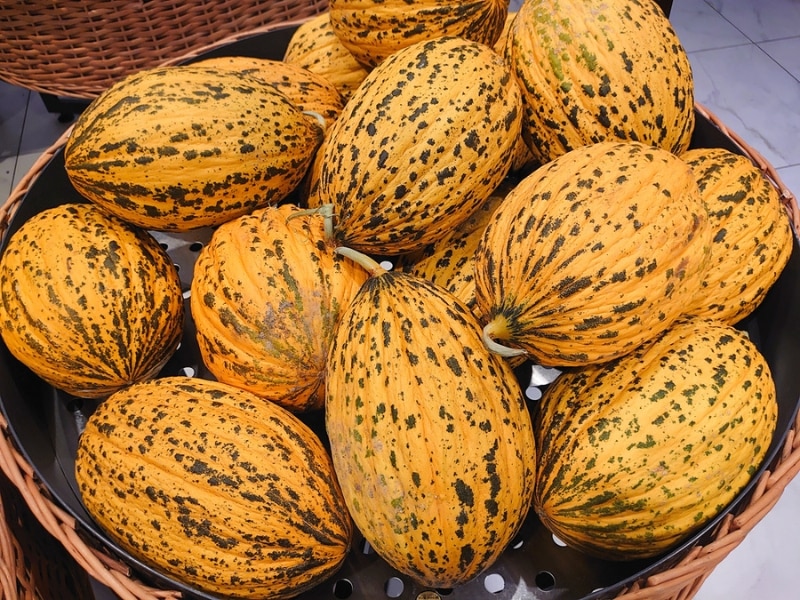
Casaba melon is a muskmelon originating from Kasaba, Turkey. It sports a squash-like appearance due to its gourd family roots.
With a spicy, aromatic, and mildly sweet taste, it’s a close relative of honeydew and cantaloupe. Enjoy it raw, or incorporate it into smoothies, soups, curries, or sorbets.
17. Charentais Melon
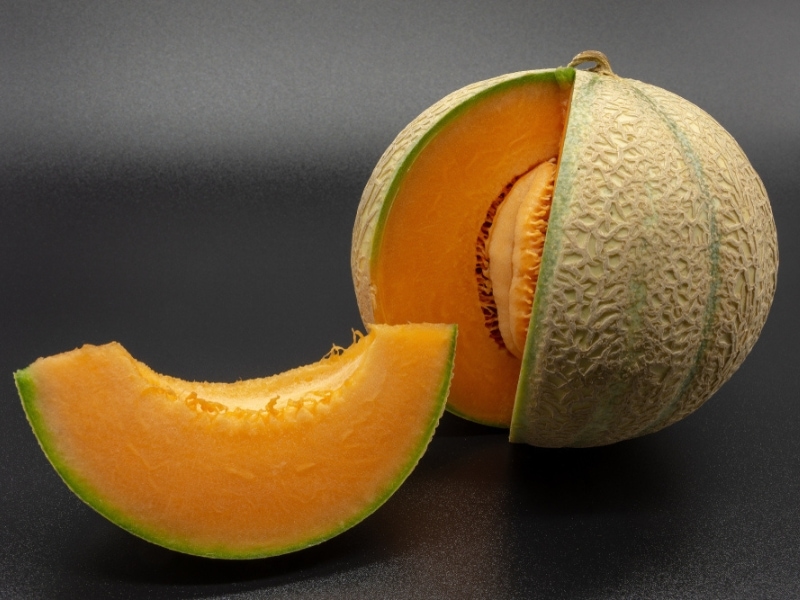
The Charentais melon is an heirloom variety. It’s prized for its nearly perfect spherical shape and cantaloupe-like netting.
While resembling cantaloupes, its taste is more refined, with slightly lower sugar content and a hint of tartness.
Often carrying a higher price tag, Charentais melons are a gourmet choice for discerning palates.
18. Sky Rocket Melon
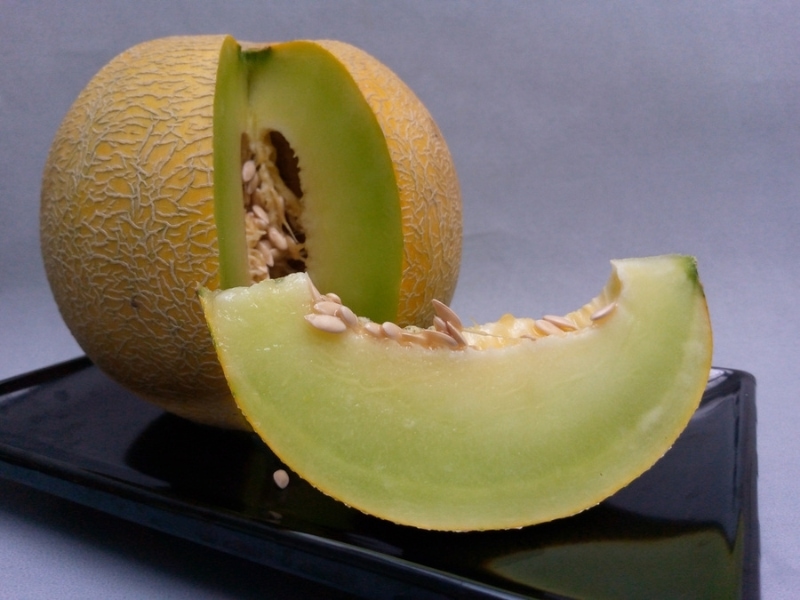
The sky rocket melon features a round shape and thick green skin. Its flesh ranges in color from greenish-yellow to green, offering a sweet taste.
Visually resembling honeydew, it stands out with its tougher rind and brown skin. Its off-white flesh carries a flavor like honeydew but with a rougher, chewier texture.
19. Sprite Melon
Say hi to the Sprite melon, one of the tiniest melons on the block. It has a round shape and seeds like a cantaloupe. This Japanese variety has an ivory skin that develops brown markings when ripe.
Weighing about a pound and roughly the size of a grapefruit, it’s a petite powerhouse.
Renowned for its extraordinary sweetness, it’s 35% sweeter than other common melon varieties!
20. Yubari King Melon
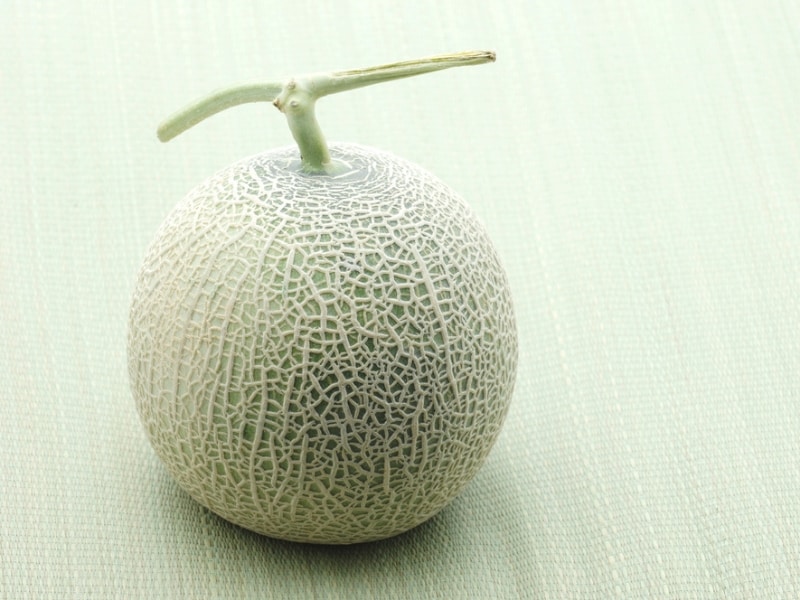
Meet the Yubari King melon, a prized variant of cantaloupe cultivated exclusively in Yubari, Hokkaido.
It has a perfectly circular shape, smooth rind, and extremely sweet and juicy flesh. It’s nothing short of exceptional. It’s the most expensive melon in the world for good reason!
21. Kantola Melon
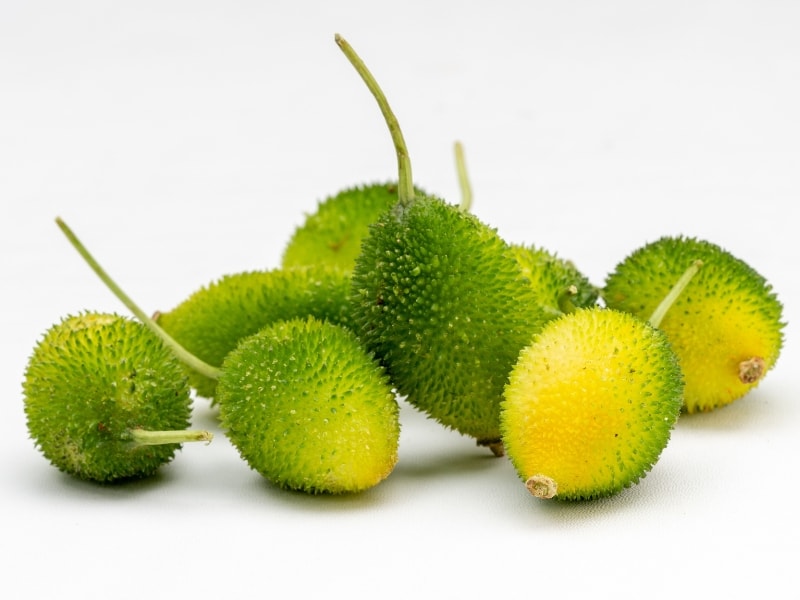
Kantola melon is also known as the spiny gourd or teasle gourd. This sparks a debate about its melon or gourd classification.
These uniquely small melons average 2 to 4 cm in size with deep green skin adorned with spines and pale to dark yellow flesh.
Popular in South Asian regions, Kantola melons add delightful flavors to meat and fish recipes.
22. Jade Dew Melon
The jade dew melon is named for its greenish-white color. It delights with a sweet and crunchy taste and pale-yellowish flesh.
This medium-sized, oval-shaped melon features a pale semi-webbed rind, encasing its delicious meat.
23. Horned Melon
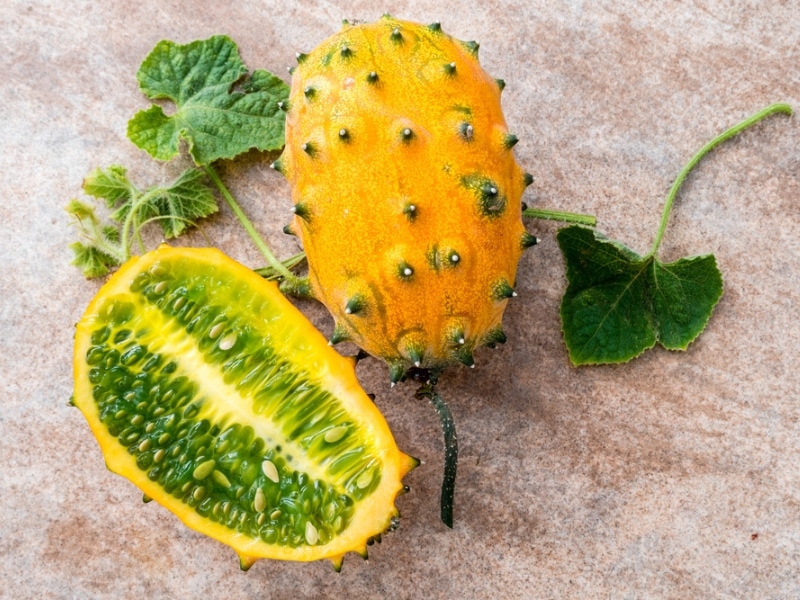
If you’re looking for something uniquely strange, look no further than the horned melon It’s also known as the Kiwano melon or cuke-a-Saurus. (I mean, how cute is that name?!)
It has a distinctive yellow spiked skin and vibrant lime green or yellow flesh filled with edible seeds.
Its taste surprises with a delightful blend of bananas, cucumbers, zucchini, passion fruits, and lime.
24. Hami Melon
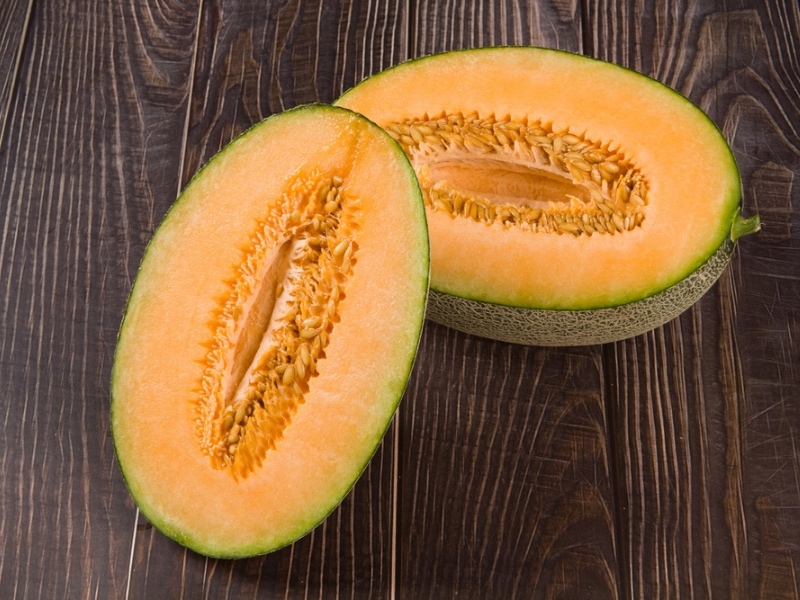
The hami melon, also known as the Chinese melon or snow melon, has a light yellow skin with green streaks.
Its crisp and sweet flavor resembles apples.
25. Winter Melon (or Ash Gourd)
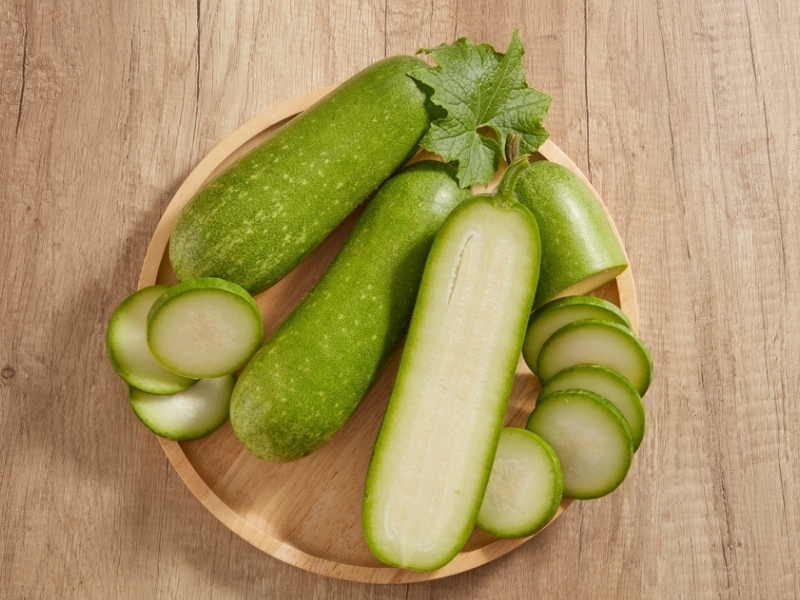
You may recognize it as a boba flavor, but let’s dive into the fruit behind it, the winter melon.
Also known as the winter gourd, this melon boasts pale ash-like skin, light green flesh, and dark green layers.
The name “winter melon” stems from both its harvesting and storage during winter months. It has a fuzzy, snow-like appearance in its immature stage.
Unlike watermelons, winter melons are not eaten raw but rather cooked through steaming, simmering, or parboiling.
